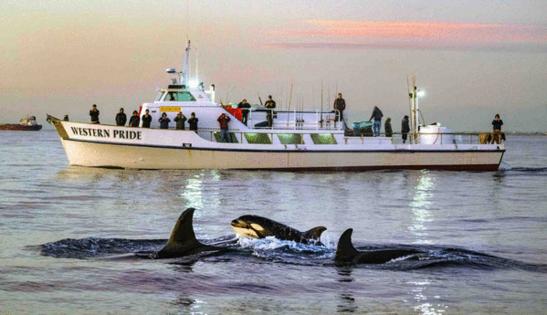Orcas are attacking ships again. Here's a history of the practice
Published in Science & Technology News
A pod of killer whales attacked and sunk a yacht over the weekend between Spain and Morocco in the Strait of Gibraltar — and it's not the first time.
The couple on the yacht said they felt sudden blows to the hull and rudder before the boat started taking on water, according to reports. They alerted authorities and a nearby oil tanker took them onboard. The yacht was unsalvageable.
Sunday's incident is the latest in a string of attacks on yachts by orcas in recent years. A lot regarding the attacks remains a mystery to experts, including the whales' motives.
Scientists suggest it could be because the orcas feel threatened, are protecting their food supply, or are simply playing around.
Here's a timeline of the encounters.
The early 1800s
That's right, we're going way back. While this latest string of whale attacks began around 2020, records show whales attacking boats isn't a new concept at all — let us all recall one Moby Dick.
According to Graham Faiella, an author whose books recall early tales of the sea, ship attacks by the marine mammals date back to around 1820, when the Essex, a whaling ship — designed to catch whales — was pursued by a group of whales that struck the ship with their bodies. The ship sank, leaving 20 castaways.
The Essex's story was said to be an inspiration for Herman Melville's novel, along with another true story from 1850 about the Ann Alexander. Based out of New Bedford, Mass., the Ann Alexander sailed to the Pacific in 1851, when it was struck by a sperm whale the crew was trying to pursue.
One whale was said to be "rushing at it [the boat] with tremendous violence, lifted open its enormous jaws, and taking the boat in, crushed it into fragments as small as a common-sized chair!" according to an account from the whalemen — the men aboard the ship tasked with catching the whales — cited by Faiella.
...continued
©2024 The Philadelphia Inquirer, LLC. Visit at inquirer.com. Distributed by Tribune Content Agency, LLC.







Comments